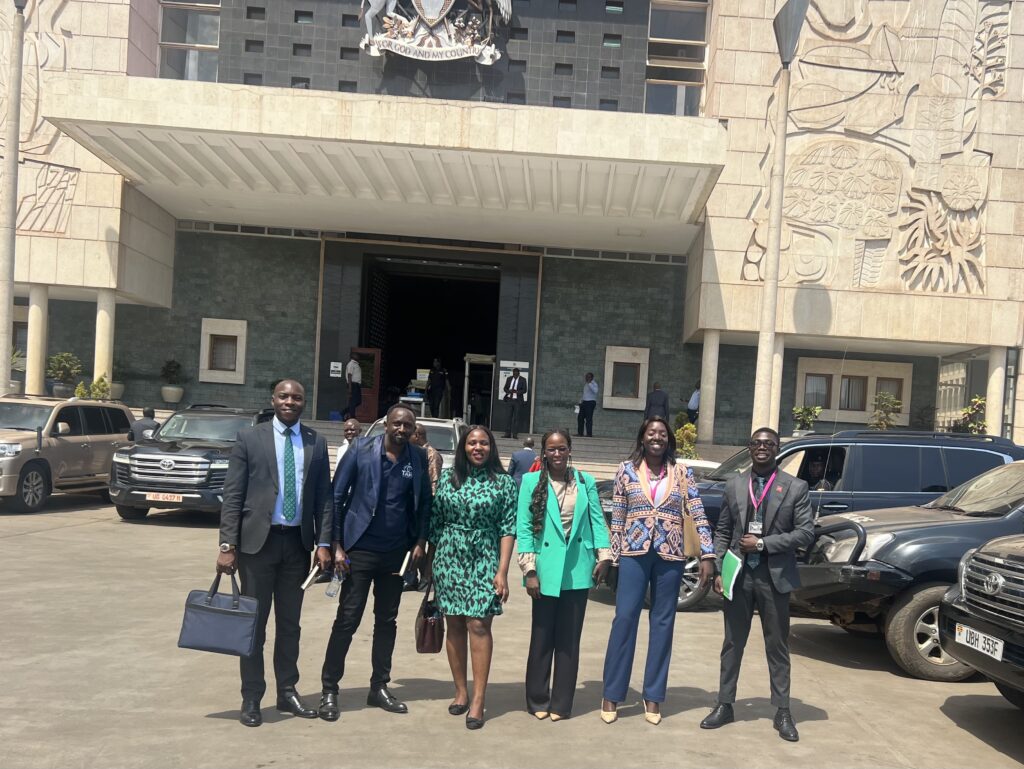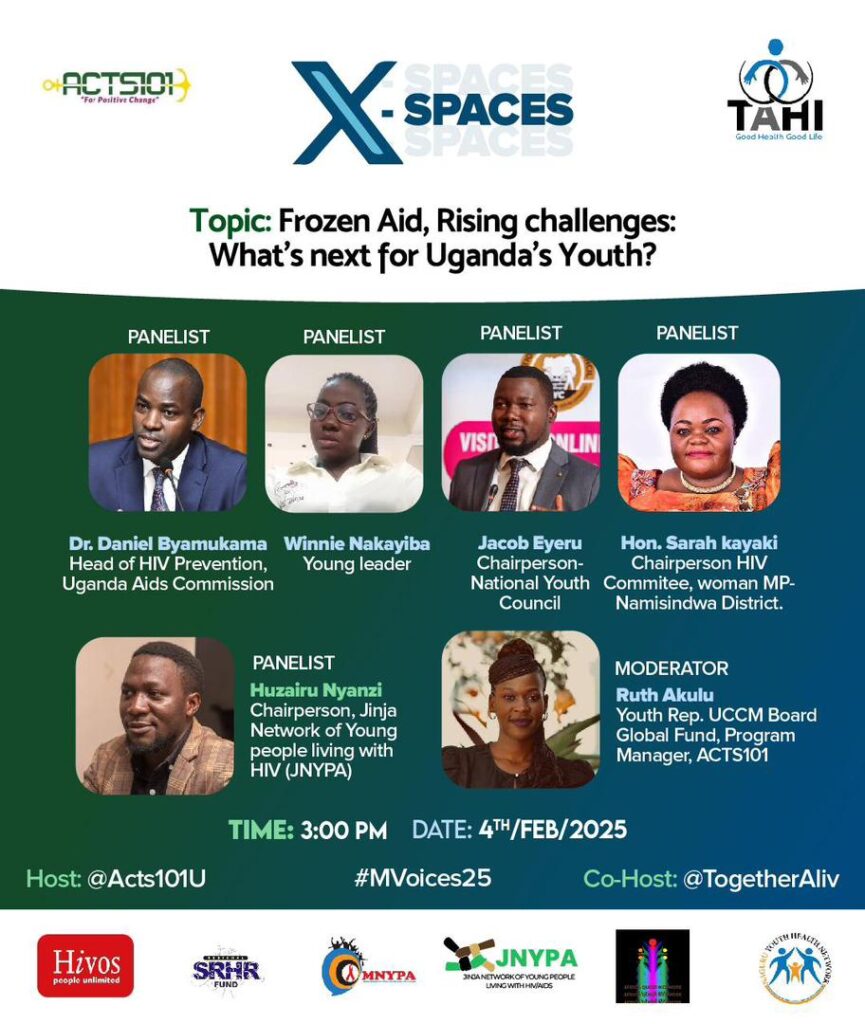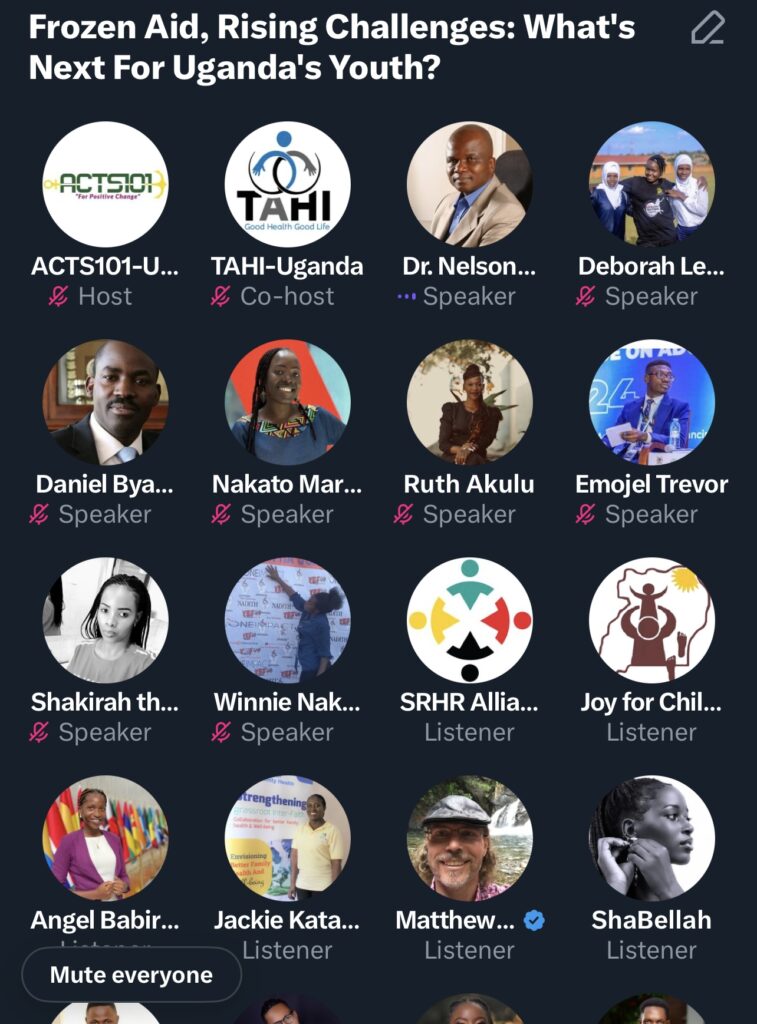With support from HIVOS, under the SRHR Regional Fund, TAHI has actively engaged various government ministries and departments at both national and district levels to address the impact of U.S. presidential executive orders—particularly those enacted during the Trump administration—on Uganda’s HIV response. These executive orders significantly disrupted USAID-funded programs, which account for over 80% of Uganda’s HIV response budget under the PEPFAR program. As a result, numerous HIV care and treatment facilities, including ART clinics and community drop-in centres, were forced to shut down.
The most affected populations include young people living with HIV and those with disabilities—many of whom TAHI directly works with. These young people bear a double burden, and prior to the funding freeze, were supported by Community Health Extension Workers (CHEWs) and Village Health Teams (VHTs) who delivered treatment to them. Despite a subsequent waiver issued by the U.S. government, many critical community referral structures remain closed, continuing to leave these vulnerable groups without essential services.
In response, TAHI alongside the National CSO activists initiated and engaged key rights holders to demand urgent action. These advocacy engagements have included:
- A meeting with the Uganda AIDS Commission
- Twitter space discussion with legislators, CSO and Uganda AIDS commission
- A consultative meeting with Members of Parliament from the Health Budget Committee and the HIV Committee
- A press conference with major media houses
- A strategic meeting with leaders in Mukono District to promote sustainable community-based HIV response systems for persons with disabilities
Key Commitments Secured Through Advocacy Efforts
- Parliament committed to pass a supplementary budget of UGX 300 billion to cover the funding gap caused by the U.S. funding freeze.
- Both Parliament and the Uganda AIDS Commission pledged to strengthen the implementation of the 0.1% HIV funding policy, which mandates that all government ministries and MDAs allocate at least 0.1% of their budgets to district-level HIV response efforts—a policy that has been widely neglected.
- A proposal was also made to increase this allocation from 0.1% to 0.5% to enhance the impact of local HIV programs.
- The Uganda AIDS Commission committed to operationalize the AIDS Trust Fund, a proposed insurance scheme aimed at supporting people living with HIV.
- Mukono District leadership pledged to consider appointing a focal person to coordinate linkages between young people living with HIV and/or disabilities and health facilities. This role would also ensure access to treatment through community-based transportation and support mechanisms.





